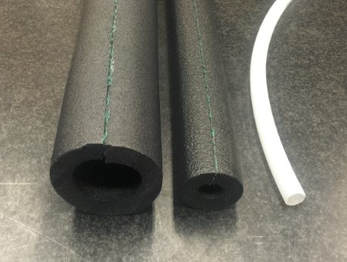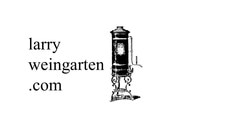 I’m a big fan of making things efficient. It’s a powerful tool for improving one’s life, yet seems to be poorly understood. It’s common that once some basic efficiency measures have been taken, the thinking is, “I’ve already done that… nothing more to do”. For example, thinking about electrical usage for a bit; if we take measures that save 25% of our bill, that feels quite nice, and then we turn our attention elsewhere. But, we can do far better. I have a friend who recently cut his electrical usage by 70%, just by looking at lighting and refrigeration. Fortunately, he’s still looking at other ways of cutting consumption. I’m helping as I can. Have you looked at your electric bill recently? A large percentage of the bill is for stuff you don’t directly benefit from, like surcharges and taxes for some or other program you probably don’t qualify for. Even if you used no electricity, just being hooked up has a cost. I’ll posit that it’s possible (and hard!) to get a 90% reduction in energy usage. This requires some different thinking… like considering money spent on upgrades as an investment rather than focusing on first cost. Looked at this way, you can figure out how this investment compares to others and also compare safety of the investments. “Life cycle cost” is another way of thinking about efficiency investments. This approach compares ALL costs over time and allows you to “race” one technology with another to see which performs better in the long term. Sometimes the most energy efficient equipment costs more than the less efficient stuff because of increased maintenance. Who knew? But imagine what happens when you do get to such a large reduction in your energy usage. Filling in the remaining 10% or so becomes something that’s pretty simple to do by generating the power yourself. This allows you to consider disconnecting from the grid, saving all those surcharges. It does mean you need to be responsible for your system, which usually means spending a few minutes a week checking on things. With electricity, the place to start is with your bills. Gather up a year’s worth and see how it goes up and down from season to season. If you look at summer bills, there should be little or no heating cost. In winter, your AC unit likely isn’t running. In the shoulder seasons, when heating and cooling are not used much is the best time to see just what your baseline load is. That’s the energy you use when nearly everything is turned off. I’ve paid attention to this in my house and it’s under fifteen watts. In many homes it’s over 300 watts! That’s a cost that gives you little in return and it’s one of the best places to look when starting to trim your energy usage. I’ve found that a Kill-O-Watt meter (at around $28) is a great investment. It lets you get accurate energy usage numbers for your appliances, so you know which are really using up your power. Measure your TV when it’s on and also when it’s off. You will likely find it uses more energy over the time it’s off then when you’re watching it! Now if you simply put it on a power strip, you can eliminate that waste. The concept is simple: Measure your usage and keep track of where power is going. From there, more efficient equipment, power strips, eliminating unnecessary electric draws and even supplementing with solar become good alternatives. For example, using a simple solar preheat for your electric water heater can have a big impact on your bill. For a LOT more thinking on this concept, I’ll suggest visiting this site: http://www.thousandhomechallenge.com/ Here, you’ll find case studies on how people made their homes far more efficient… often using a lot of creativity, which can be very inexpensive! You’ll even see that my home was the 13th one to meet the challenge. :~) So far I’ve just been talking electricity, but the concept of efficiency works in many other fields; like water, gas, trash, transportation, home size and even money! Yours, Larry
0 Comments
|
Larry Weingarten
Looking back over my working life of 50+ years, it seems clear that self sufficiency has always been the best way for me to be useful. Now, mix in a strong interest in water in its many forms and the wide world of animals and you'll know what's important to me. Archives
January 2023
Categories |
Copyright © 2014 - 2023
All Rights Reserved
All Rights Reserved



 RSS Feed
RSS Feed